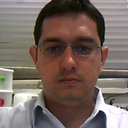[Microbiological isolates in patients with febrile neutropenia and hematological neoplasias].
キーワード
概要
We studied the frequency of culture isolation, type of microorganism isolated and local pattern of resistance in 309 adult febrile neutropenic inpatients with hematological neoplasm, who were hospitalized between January 1998 and December 2003, in Caracas University Hospital (Hospital Universitario de Caracas), in Venezuela. There were 576 febrile neutropenic episodes. Organisms were isolated in 41% of 940 cultures. The most common organisms involved were gram-negative bacilli (48%), followed by gram-positive cocci (35.1%), fungal (11.5%) and other agents (5.4%). Coagulase-negative staphylococci (22.4%) and Escherichia coli (13.4%) were the most isolated; 58.5% of 479 agents isolated had an antibiogram; 62.2% of coagulase-negative staphylococci and 23.1% coagulase-positive staphylococci were oxacillin-resistant. We did not find any vancomycin-resistant organisms. The gram-negative antimicrobial sensitivity for imipenem was 96.2%, cefepime 81%, and ceftazidime 57.5%. Tazobactam-piperacillin and sulbactam-cefoperazone were tested in 26% of antibiograms and had activity of 57.1% and 77.5%, respectively. Fungi were not characterized. Betalactamases producing gram-negative bacilli were found. In general, micro-biological identification and local vigilance of antibacterial resistance pattern must be done routinely in these patients, in order to improve empiric therapy guidelines.


